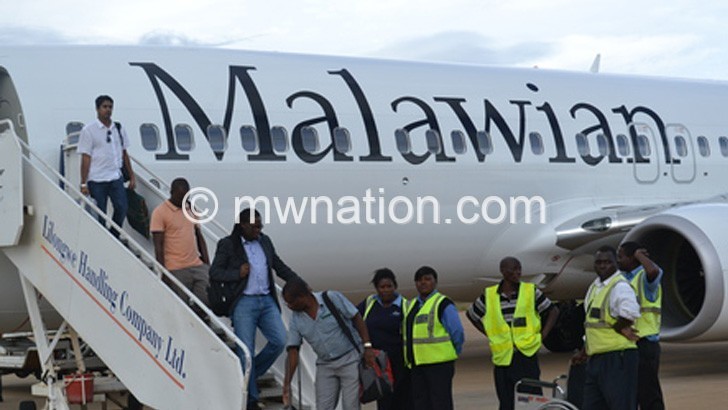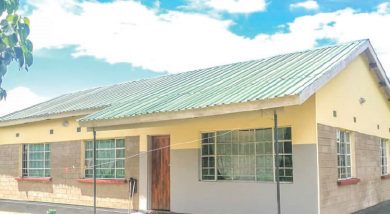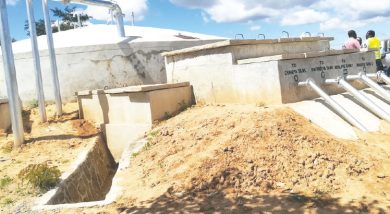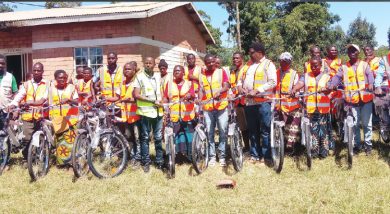Poor Malawi Shifts K41bn to ADDIS
Malawi Airlines formed after the liquidation of Air Malawi, has posted zero profits in five years but paid over K41 billion for aircraft sub leases, management fees and other payments to its strategic partner, Ethiopian Airlines (ET).
Malawi Airlines (MA) board chairperson George Partridge confirmed in an e-mail response, the new airline which has been heralded for proudly brandishing the Malawi flag wherever in flies mainly it flies has made no profits since it started operating in 2014.
He said: “Since the airline started, I can confirm it has not made any profits. The major return and primary objective of the investment was the general economic returns on the investment due to the connectivity that the airline is providing in the most efficient and effective way. This objective has largely been achieved compared to the time we had no national airline.”
Partridge also confirmed the monthly payment of $219 000 or K9.7 billion for five years and $180 000 or K7.9 billion for five years for subleasing a Boeing 737-700 and a Bombardier Q400-Dash 8, respectively, with the sublease payments for five years totalling K17.95 billion.

An impeccable source disclosed that the airline has also been making the following monthly payments to ET, its strategic partner with a 49 percent shareholding: a fixed charge of $152 000 as management fees, $75 000 or K56.2 million for five years technical handling fees and $77 000 (K57.75 million for five years) for the component exchange programme.
Treasury spokesperson Williams Banda, whose ministry has 51 percent shareholding in the airline holds on behalf of the Malawi Government confirmed the additional payments which total K23.3 billion for five years.
Added together, MA’s payments to ET, air craft subleases and other contracts, in the five years of its operations total K40.9 billion.
From our analysis, this is about 50 percent of the airline’s gross turnover of $109 903 789 or K82 billion in the five-year period broken down as follows:
l2014/15 ($20 130 355)
l2015/16 ($17 701 641)
l2016/17 ($19 655 311)
l2017/18 ($26 236 370)
l2018/19 ($26 180 132)
Reacting to the payments, Public Accounts Committee (PAC) chairperson Shadreck Namalomba—an audit advisory expert himself—described Malawi Airline’s payments to ET as a typical example of transfer pricing and suggested Malawi Revenue Authority (MRA) should assess them for possible tax evasion.
Transfer pricing, according to Taxguru, a tax, audit and financial advisory think-tank, is the price which is paid for goods or services transferred from one unit of an organisation to its other units situated in different countries.
The group lists compensation for intra-group services such as management fees as one of the important transfer pricing challenges globally for taxpayer and authorities alike.
It warns: “Management fees is one of the more important and legitimate tax planning tools for effectively lowering taxable income in a particular tax jurisdiction.” The think-tank further warns tax authorities to “look at this mechanism as a profit extraction technique and to adopt a strict posture while investigating the inter-company affairs.”
The source said: “When a spare part is purchased, MA is charged for it and another 10 percent of the cost of the spare part as handling fee. This is on top of the fixed $75 000 [K56.2 million] that is already being paid as management fee.”
The source explained that under the component exchange programme, MA is able to take a spare part from ET and put it on its aircraft.
According to the source, the technical handling section comprises a whole department of engineers from Ethiopia, and that government pays a fixed amount of $75 000 (K55.2 million) a month.
Banda said his ministry is aware of the huge expenditure by the airline but it is waiting for the board of directors on the way forward.
“Government manages the airline through the board of directors. Now that the airline has operated for five years, government will have to do a review basing on the resolutions of the board.”
Commenting on the sublease deal for the Boeing, Partridge said: “These are fairly and advantageously priced in the market in all comparative parameters. Malawian Airlines would not be able to lease a commercial aircraft on the market with the major leasing companies on its own and that is why it piggy-bags on Ethiopian.
“The board from time to time checks whether the company receives the best deals comparable to the market and I can confirm that Malawi Airlines gets the best deals.”
He said because of the nature of the industry, it takes a number of years for any start up airline to make profits, let alone if an airline is operating two aircraft only.
“The journey to commercial profitability was premised on acquisition of more aircraft than the current two, but those plans have had a hiccup in 2020 due to airspace shut down and now the complicated logistics of air travel which the industry is not aware how long these restrictions will last.
“I am confident that its shareholders (Malawi Government and Ethiopian Airlines) will find the best options that will help the airline endure these difficult times and continue serving the Malawian public in their air transportation needs and achieve its goals in the years to come.”
But Namalomba said under the deal MA would be deliberately making losses while ET is reporting profits. He warned the losses MA is making will at one time be shouldered by government and suggested government should revisit its partnership with ET.
“PAC will soon be engaging MA management and the Public Private Partnership Commission [PPPC] to explain and account for the losses MA is making.”
PPPC acting chief executive officer Audrey Mwala, whose organisation brokered the ET-MA deal, said her organisation does not play any active role in the operations of the airline as it is not on the board of directors and was therefore not privy to reports of the board.
She said PPPC was only tasked with the liquidation of the old airline—Air Malawi—adding that thereafter government through Ministry of Finance set up the new firm as a joint venture.
Last year, Reserve Bank of Malawi (RBM) said it was investigating over 11 multinational companies and individuals for possible transfer pricing and externalisation of forex through which Malawi had lost $980 million (approximately K719 billion) between 2010 and 2017. This, according to RBM, followed the central bank’s forensic audit of different firms during the period.
The Malawi Government has a 51 percent stake in the airline, of which 31 percent was expected to be taken up by Malawian individuals and institutions within 12 months of commencement of its operations suspended for 7 months due to air space closures.





